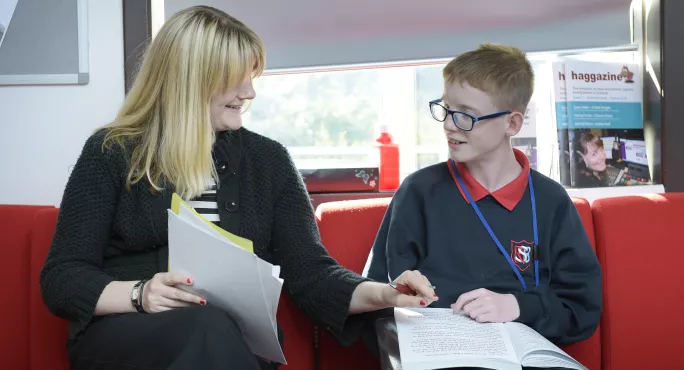Blind and deaf children are missing out as specialist teachers are being pulled in to cover mainstream classes, according to the charity, RNIB Scotland.
Children with visual impairments - whose numbers have doubled in recent years - need to be taught the skills they need in order to access the curriculum, like how to read Braille and use “assistive technology”. They also needed to be taught orientation and mobility skills; personal care; cooking and how to manage their money.
However, many were missing out on the chance to properly develop these skills due to the failure to replace specialist visual impairment teachers and hearing impaired children were being hit by similar issues, said Anne-Marie Fleming, education and family services manager at RNIB Scotland.
The national teacher shortage was exacerbating the situation further, she added.
Ms Fleming - who was speaking at an additional support needs (ASN) conference held in Edinburgh today - called on the Scottish government to provide an incentive for teachers to undertake the four-year training to become specialist teachers of the blind.
She said: “Because of the general teacher shortage… qualified teachers are teaching in the mainstream or covering classes. They are being pulled from their specialism into the classroom.”
Figures published last year showed that a third of places on the most popular route into secondary teaching in Scotland - the one-year PGDE - went unfilled.
In February, Royal Blind - the organisation which runs the Royal Blind School in Edinburgh - warned a new attainment gap was opening up between visually impaired pupils and their sighted peers due to diminishing levels of support in school.
It said the number of visually impaired students going on to university was a third less than for sighted pupils and called on the Scottish government to do more to help blind and partially sighted pupils, after a significant rise in the number of such students in Scottish classrooms
According to the charity the number of children with some form of visual impairment in Scotland’s schools increased from 2,005 in 2010 to 4,175 in 2016. But there was a reduction in the number of specialist teachers.




